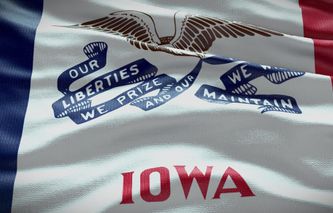Humans practice several sports cultures from the times of the caveman down to our modern recreational activities. For some centuries, sports served as a means to hunt for food.
Others created recreational events, exhibitions, and other sports competitions. Another group utilized the idea of physical activities as a method of bonding. Whichever reason is attached to a certain activity, they all have an ancient culture and how it all started. Let’s look through these cultures and how they have evolved into modern gaming activities.
Sports Culture In The Ancient East
From prehistoric times, the ancient east has always been known for a dominating sports culture. Recreational activities started in the 17th century among countries in the ancient east as prehistoric social practices. These activities hailed from the slave society and aretypically mentioned in students’ essays on culture yearly in college. University students also look forward to free essay samples about culture and the tales on feudal society of the ancient east. Activities like fistfights, chariots riding, and archery are the major highlights of the sports culture in the ancient east. Surprisingly, the countries still held to the social practices during the historical evolution ignoring all challenges and setbacks.
At first, only a few countries in the ancient east had a distinguished term for sports. However, competitive games helped shape their self-cultivation skills and increased their dynamic entertainment lifestyle.
The African Sports Culture
Sporting activities in Africa can be dated back to the 19th century. With the competitions serving majorly as a means of entertainment and showcasing of strength. Today, sports development in Africa widely strikes across the continent’s political, cultural, economic, and social sections.
Although the influence of European power introduced several recreational activities, Africans stood strong in their traditional sporting activities.
The culture in Africa initiated the call for independence from the colonization of African countries. Indigenous activities like wrestling, fistfighting, Ngolo and Capoeira, Donkey racing, and Dambe boxing should be included in the Olympic games.
Even when a few of these might seem a bit extreme for the Olympics, they’d be fun and highly competitive. University students love to research and write about African games and the topic of including them in the Olympics.
The Brazilian Sports Culture
Brazil is generally popular for its contribution to the world of football. Little do the majority know that the country participates in a few other sports. Other activities that include mixed martial arts, tennis, volleyball, and motorsports hold Brazilian cultural significance. Of course, the famous Formula One is a tournament that holds its roots in Brazilian culture. Aside from football being a physical activity for children, youths, and adults in Brazil, it also plays a huge role in the economy.
In 1970, the footvolley game was introduced in Brazil as sports that sync volleyball and football. As a beach sport in the country, tourists and citizens enjoy the thrilling moments of playing footvolley on the beach.
Students can play footvolley in their schools with a range of 2-5 players on both sides. As the third most popular sporting activity in Brazil, basketball grooms players with its national leagues in preparation for the Basketball World Championship.
Olympic Games: The Modern Sports Culture
Like you know, the Olympic Games is the leading international sporting event that features athletes and players from across the globe. Today, you’d notice a student spends years preparing for the Olympic games in school. The opening ceremony of the Olympics is an all-out celebration of various cultures and parts of the world.
The platform brings together professionals from more than 200 countries in a competition for globally recognized medals. The Olympic games have evolved across the 20th and 21st century with updated game rules and competitive rounds for participants. It also integrated the Winter Olympic Games that features ice and snow sports for people who love to skate.
Conclusion
The world of games has helped shape the diversity factor of humans across the planet. For the love of sports culture, individuals set aside their cultural, racial, political, social, and religious differences for a peaceful planet.


